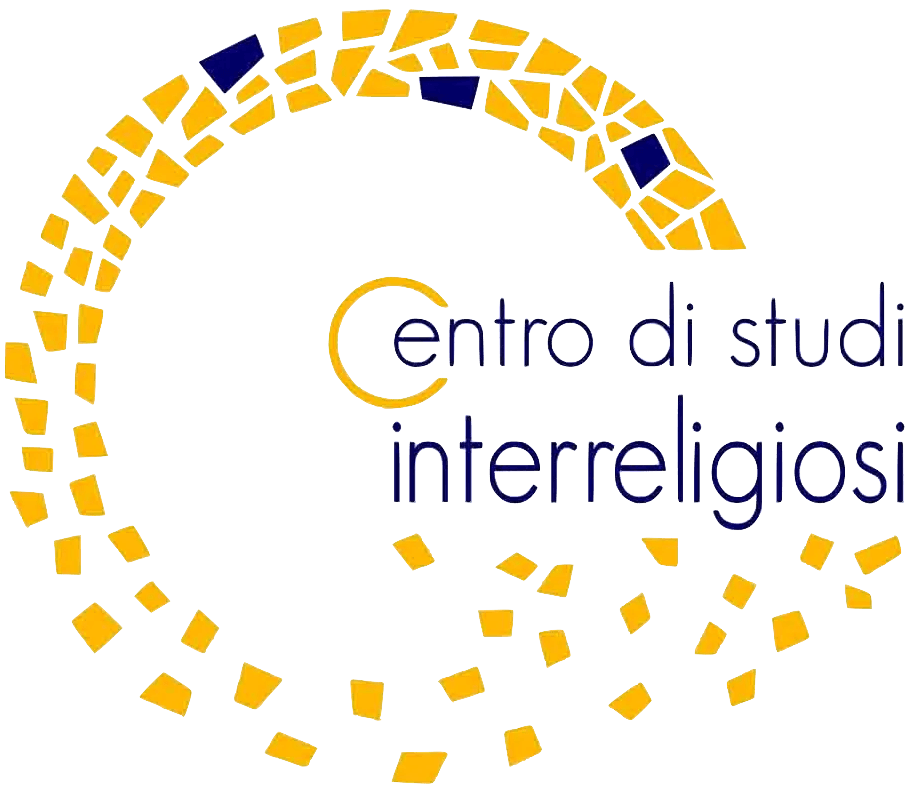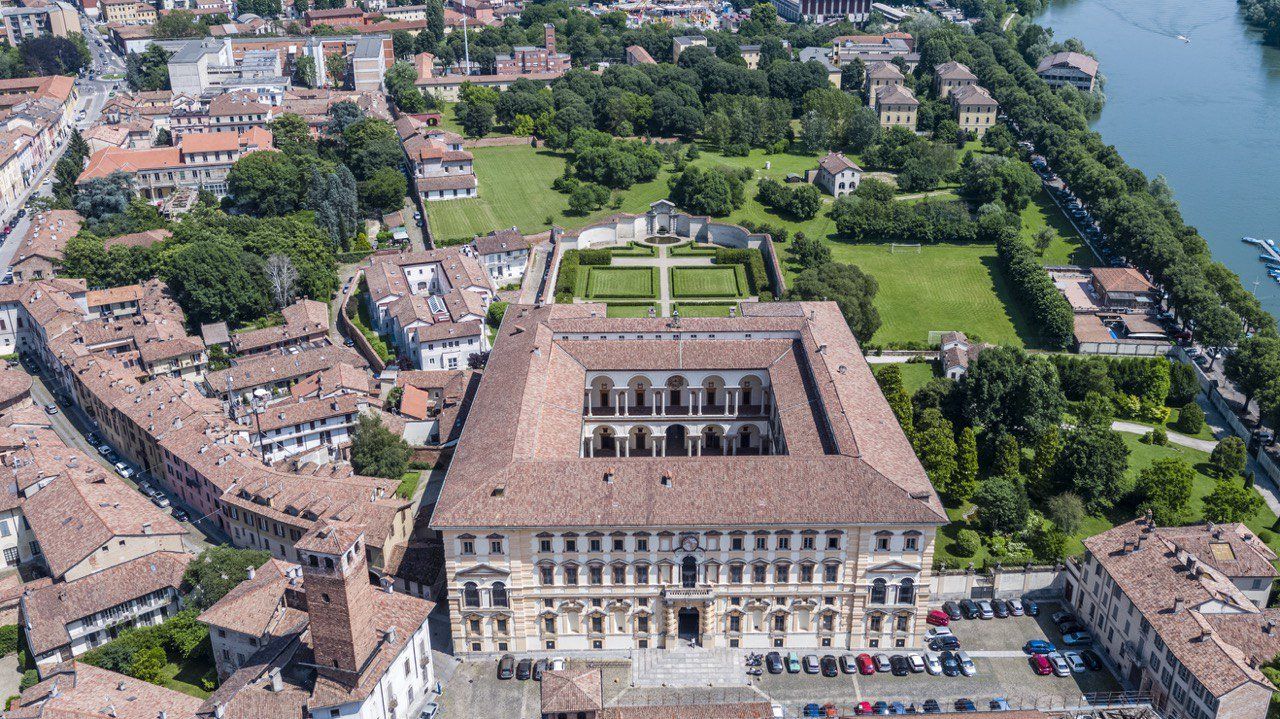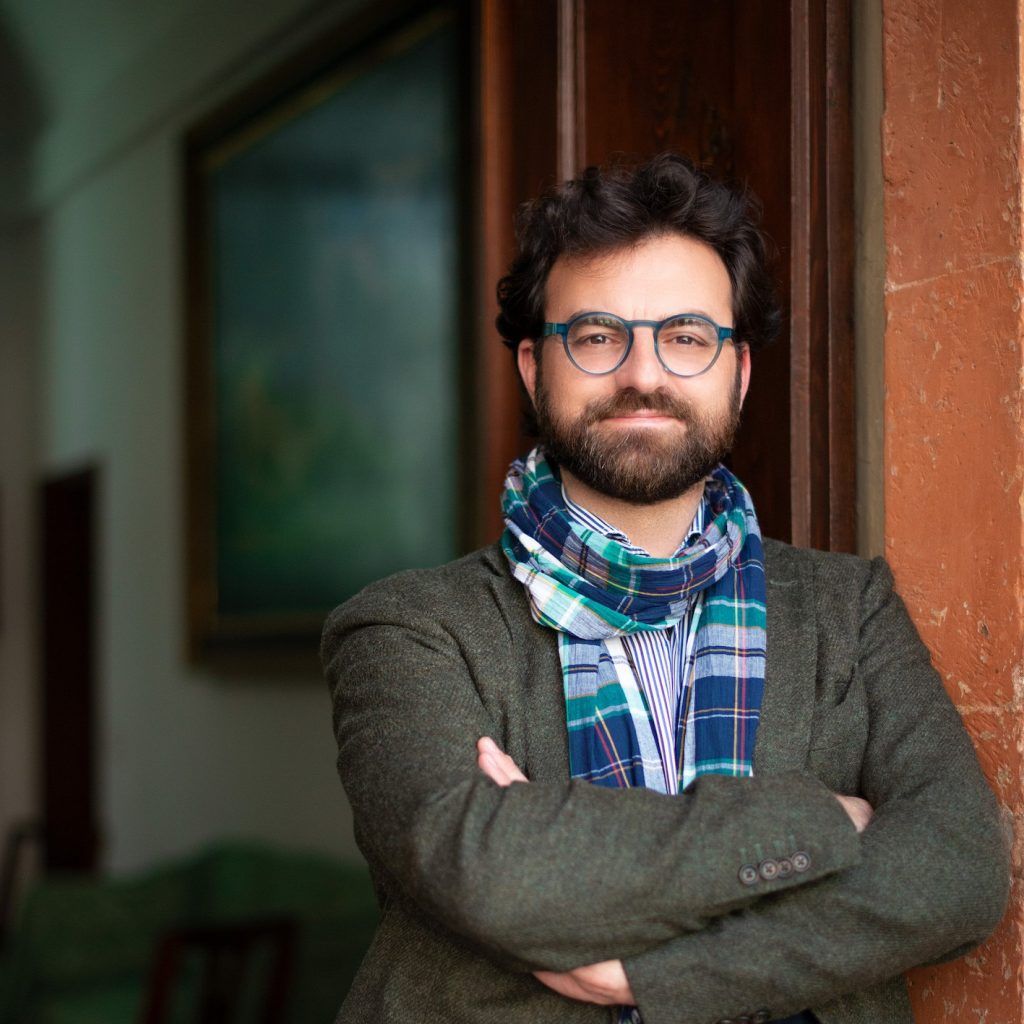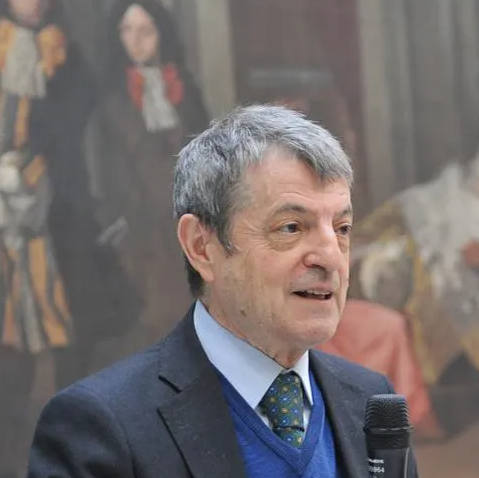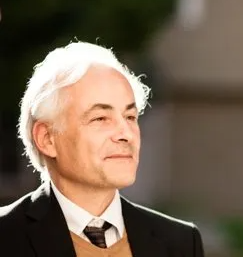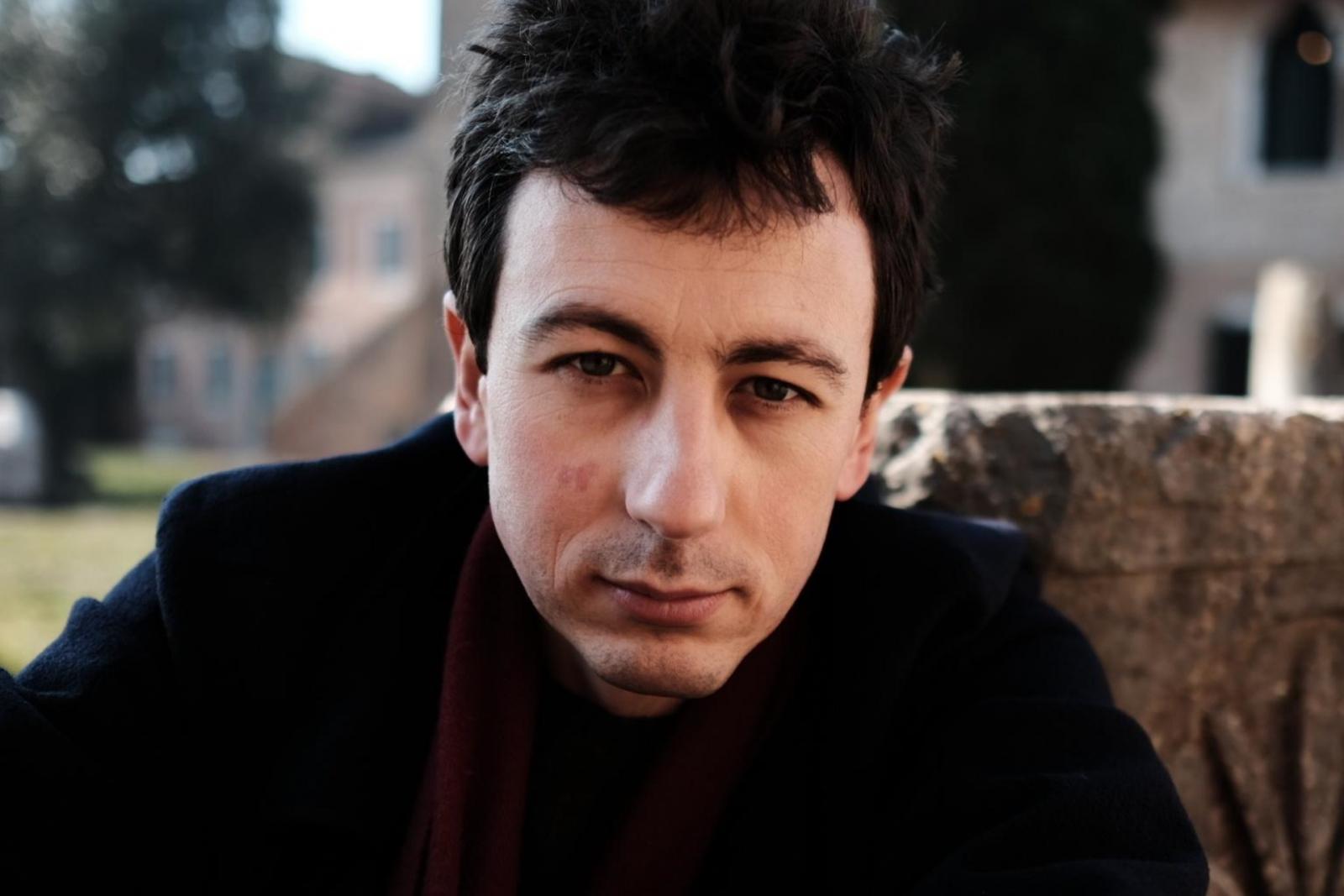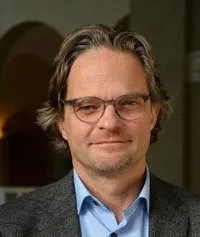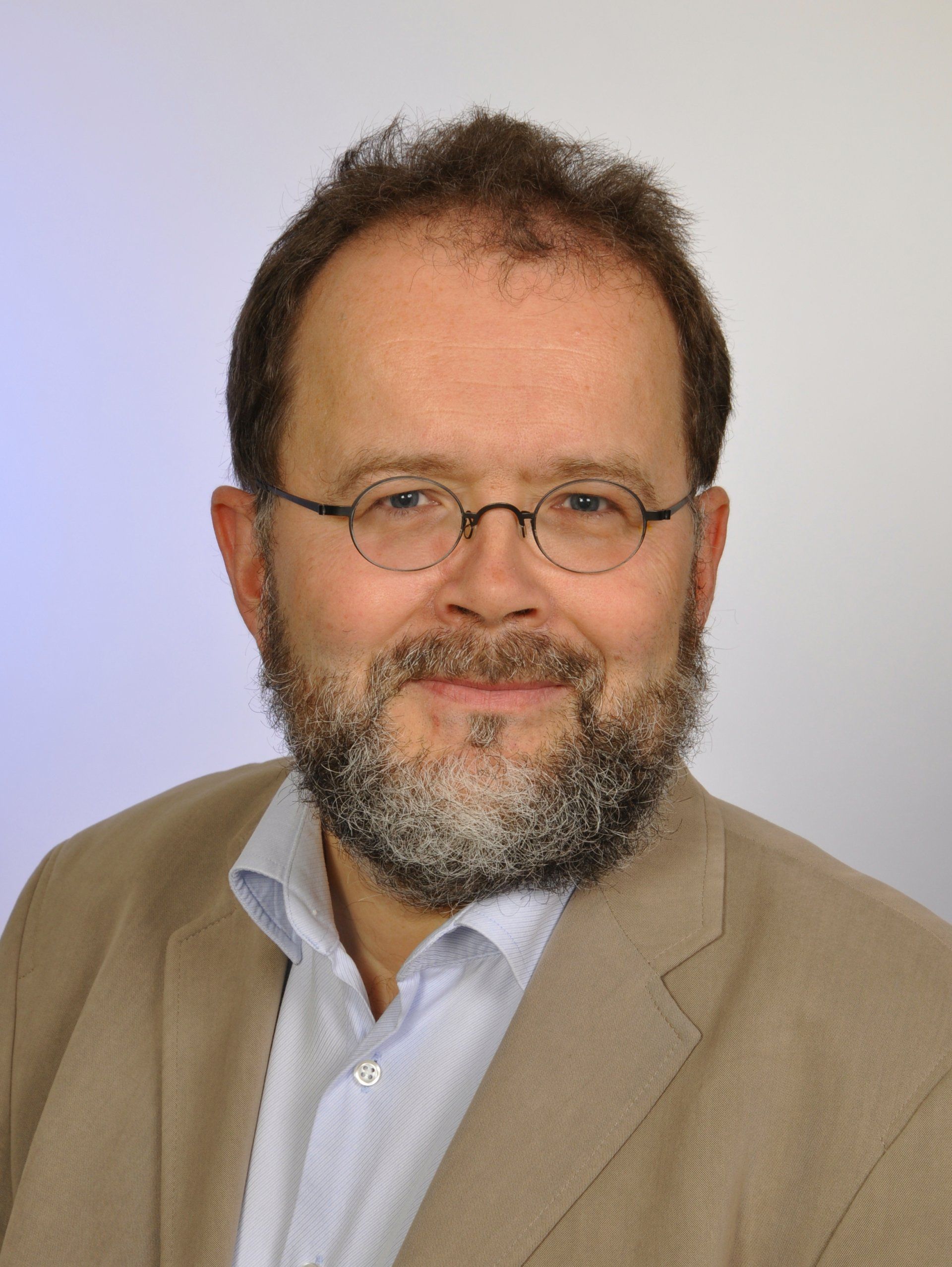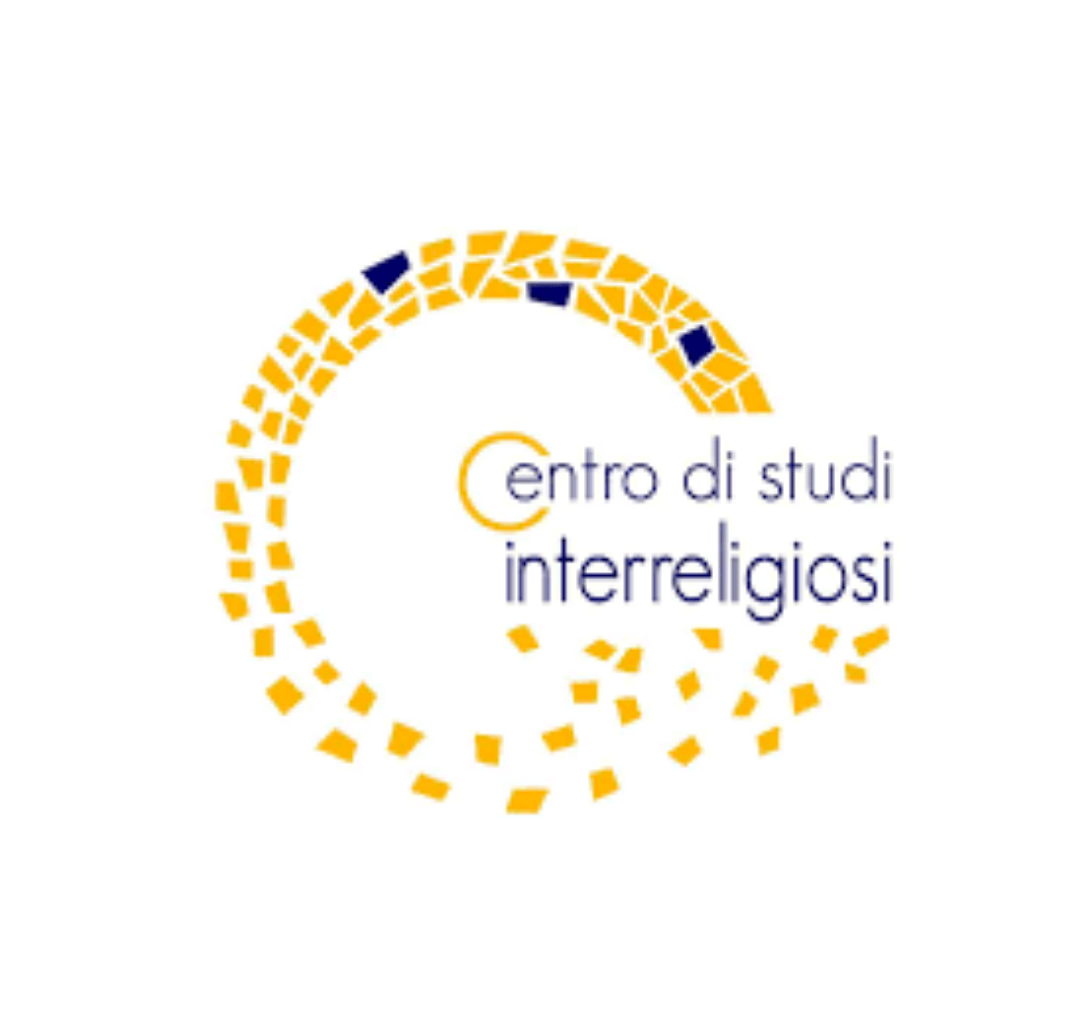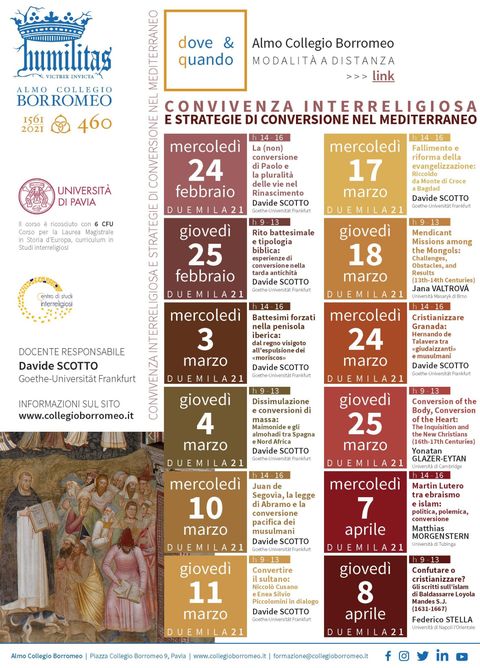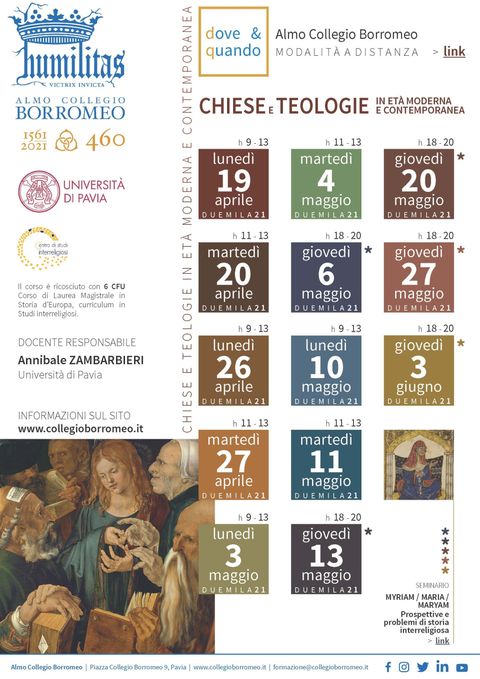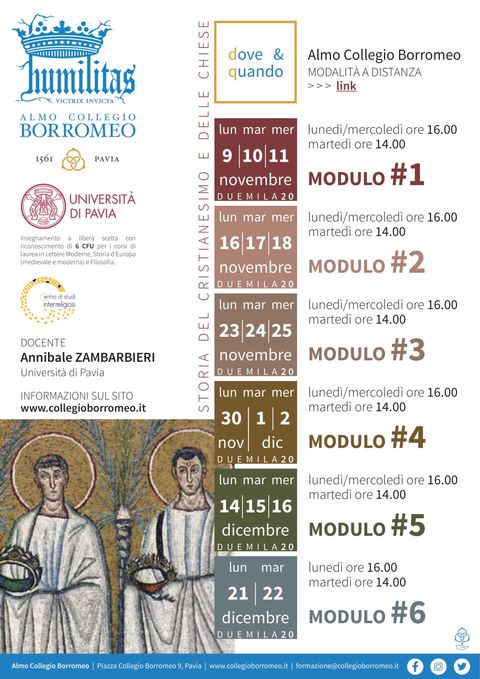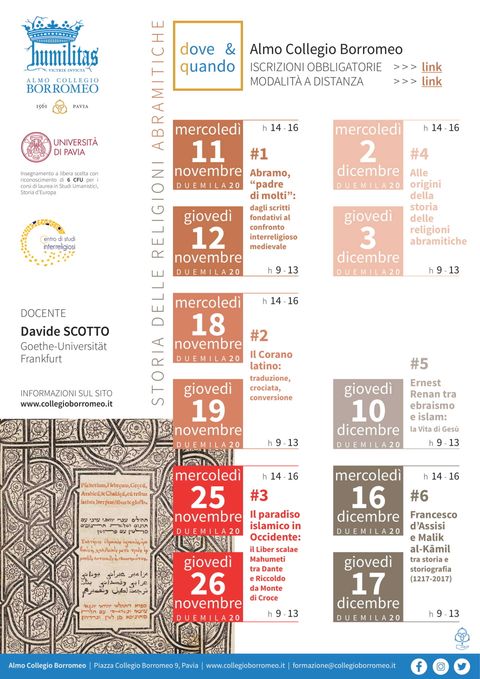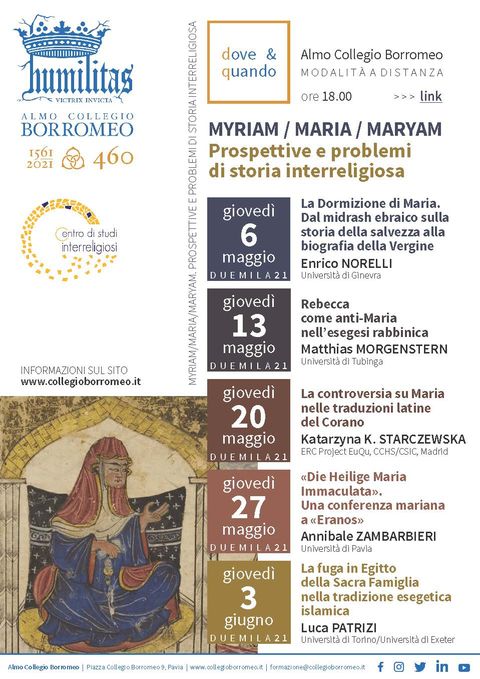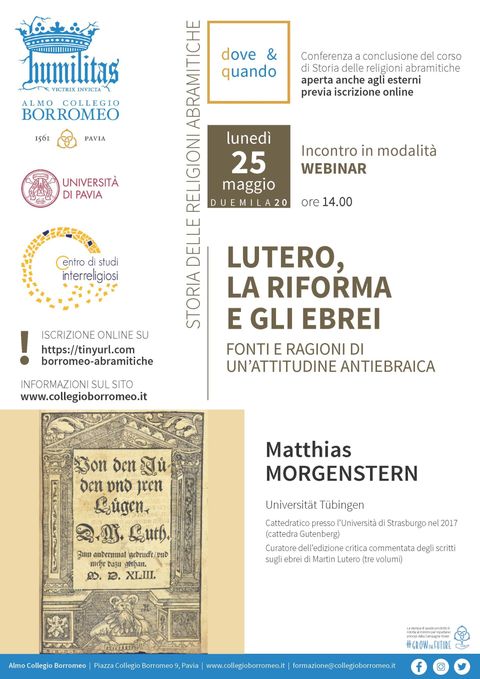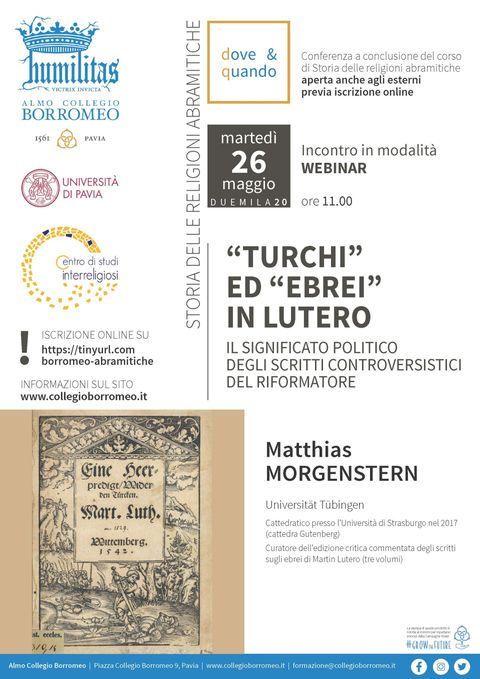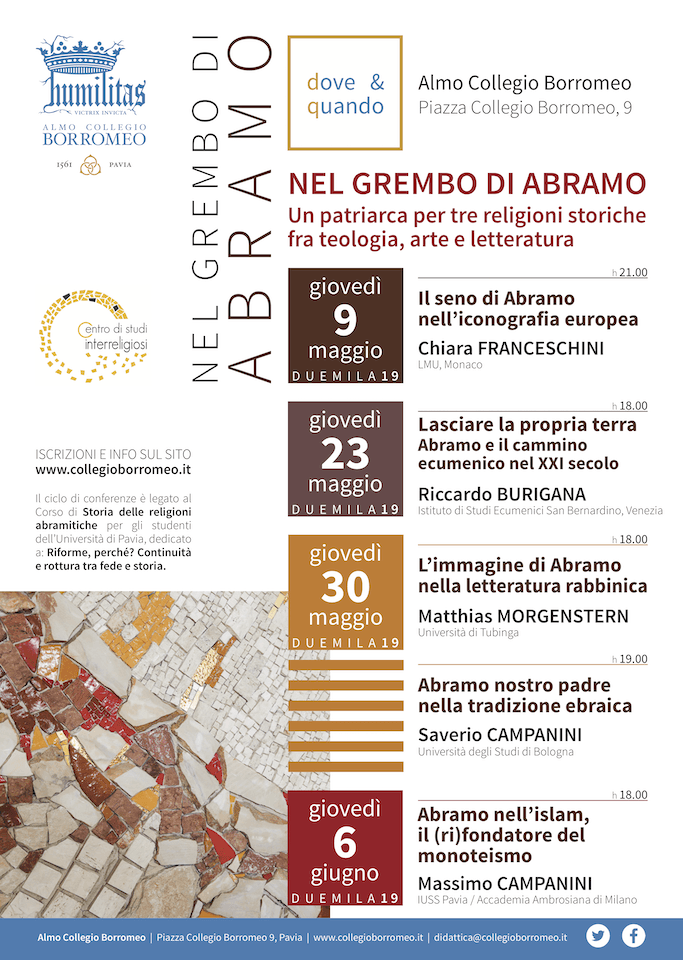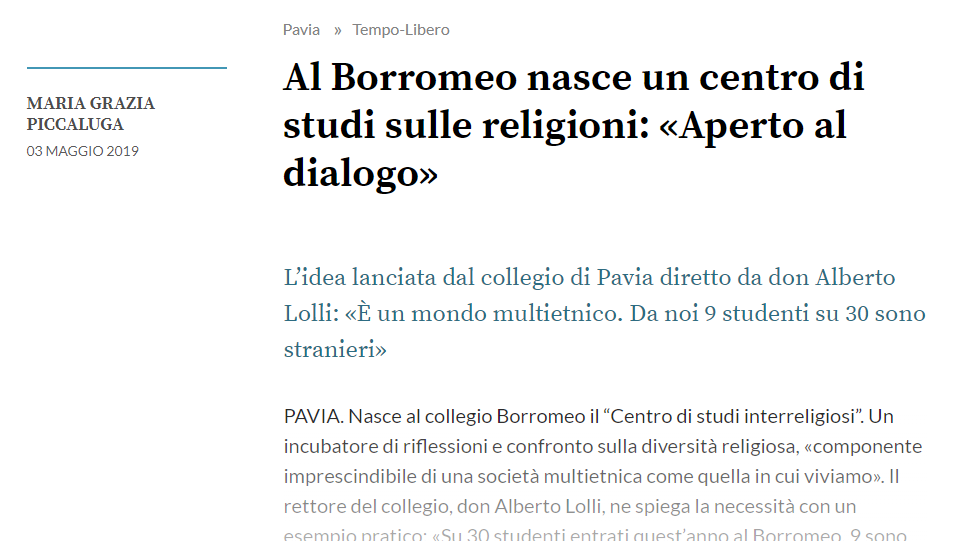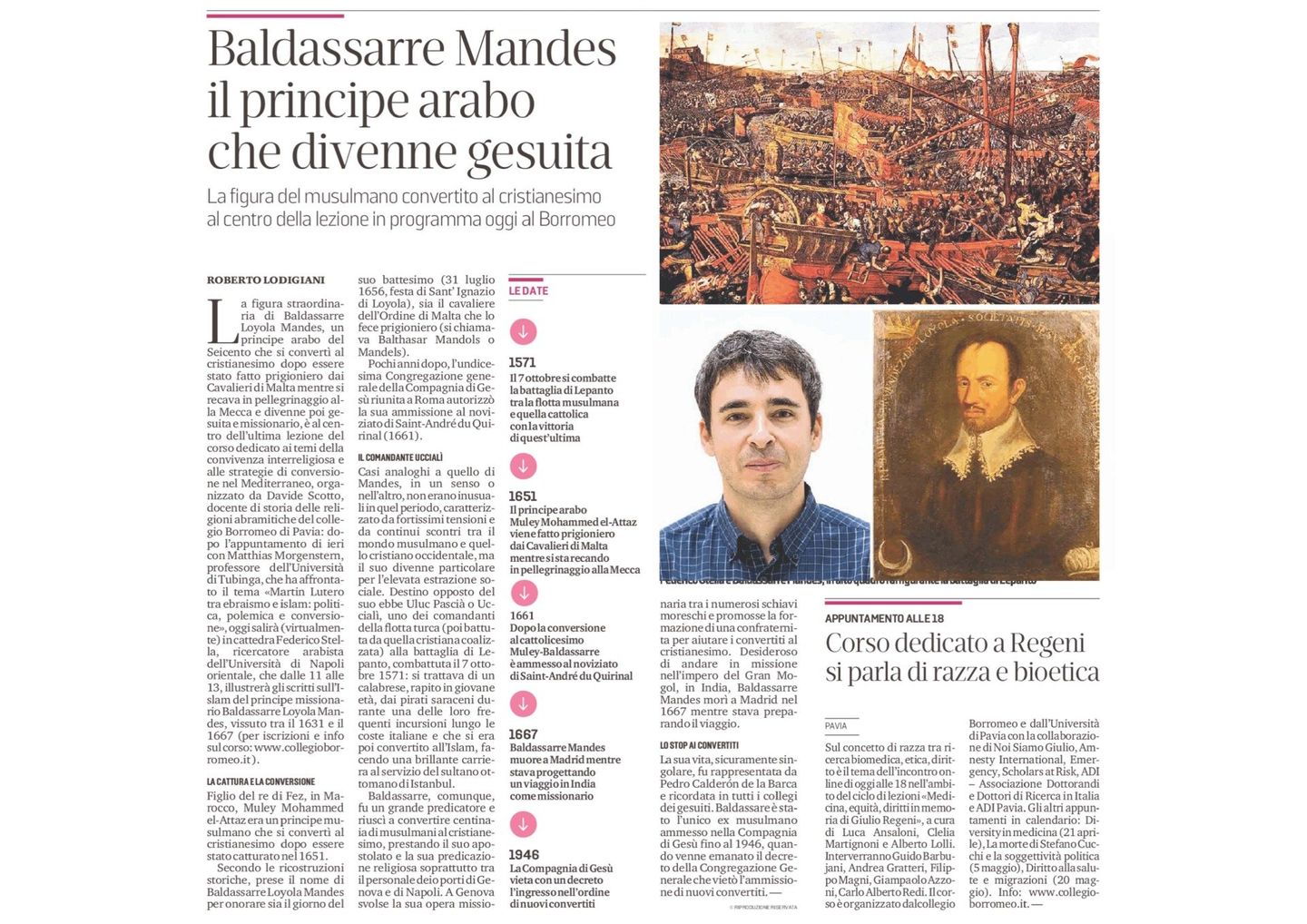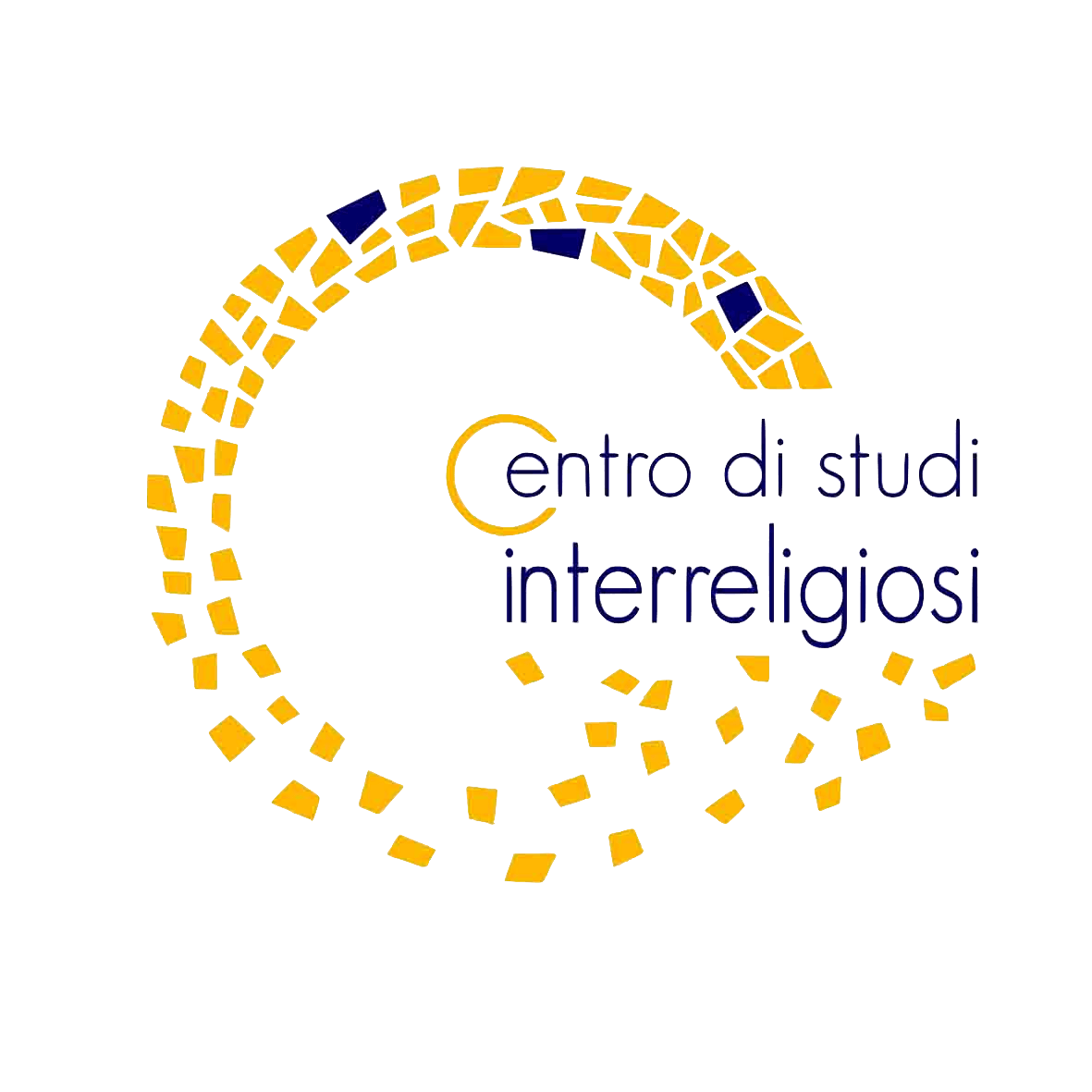Religious pluralism is part of our reality,
bringing with it cultural enrichment,
challenges and reasons of conflicts.
Integralism and fundamentalism are defensive responses to such conflicts. Reasoning and comparison are the alternative ways promoted by the Centre for Interreligious Studies. The Center has a tripartite goal: research, education, and dissemination. Born within the Almo Collegio Borromeo - a College of merit whose primary mission is the higher education of university students - the Centre offers quarterly classes addressed in particular to students of history, but accessible to all students of the University of Pavia and external auditors.
The Centre
The Centre was established in 2019 in the wake of History of Christianity and History of the Abrahamic religions, two classes which every year the Collegio Borromeo offers to internal pupils and students of the University of Pavia. Starting from the Academic year 2020/2021, these introductory classes are followed by two additional classes: Interfaith coexistence and conversion strategies in the Mediterranean, and Churches and theologies in modern and contemporary Europe. The new classes enrich the educational programme of the Centre and see the participation of guest scholars belonging to Italian and foreign institutions.
Aims
In terms of research, the Centre aims to investigate the contacts between different religions from a historical, philological, and comparative perspective. Drawing on the strong interaction of scientific skills, purposes, and academic experiences of its members, the Centre moves from the relations between religions defined as Abrahamic in that they recognize in the figure of Abraham a common reference - Judaism, Christianity, and Islam - to their interactions with non-Abrahamic faiths.
Initiatives
Besides university classes, the Centre organizes lecture series, conferences, and a yearly summer school for PhD and Postdoctoral students where figures, topics, and critical issues relating to the history and theologies of the three Abrahamic religions are critically tackled starting from the analysis of primary sources. Scholars of Jewish, Christian, and Islamic history, theologians, cultural and art historians belonging to both the Centre and international institutions take part in the summer school as guest lectures. The Centre is committed to collect and publish the results of its scientific activities in a forthcoming book series.
Agreements and partners
The Centre cooperates with the University of Pavia as well as with renowned European universities and research institutes - the LMU of Munich, the Centre for Islamic Theology of the University of Tübingen, the ERC Project The European Qur’an at the University of Naples L'Orientale. The aim is to co-organize Academic meetings and to identify common lines of research and projects, as well as to enhance the Centre’s role as a scientific observatory of the history and contemporary implications of interreligious relations.
From the most ancient times, mosaic art displays the need of beauty of man, who constantly tends to embellish the spaces he inhabits. The harmony of shapes and colors, within the complexity of tiles placed side by side, makes up signs that together form drawings.
The logo of the Center for Interreligious Studies takes up the meaning of this technique, on which the three Abrahamic religions, in different times and ways, have drowned to enrich their sacred places and describe the long path they are called to walk in order to find unity - the opposite of a trail, going from indefinite to finite. The complexity of the tiles outlines religious pluralism and cultural enrichment, but also reasons of conflicts to which throughout time, people has often responded with integralism and fundamentalism.
The Centre is committed to reflect on the potential harmony of this mosaic by means of investigation, reasoning, and comparison, starting from the history of the so-called Abrahamic religions, which are symbolized by the logo’s chromatic detachment, to open up connections with other cultural and religious traditions.
LECTURE SERIES
Myriam/Maria/Maryam.
Prospettive e problemi di storia interreligiosa
(2021)
Lutero, la Riforma e gli Ebrei:
fonti e ragioni di un'attitudine antiebraica
(2020)
"Turchi" ed "Ebrei" in Lutero:
il significato politico degli scritti controversistici del riformatore
(2020)
(2019)
SUMMER SCHOOL
(coming soon)
At the crossroad between Academic disciplines and religious denominations, this CIS summer school aims to provide a comparative discussion of the meanings and the implications of prophetology in the history of the Abrahamic religions from both a critical-exegetical and a cultural-historical perspective. The scriptures of each religion and a series of historical case studies from the late antiquity to the early modern will be tackled comparatively. During the five-day summer school, experts in the history of judaism, christianity and islam will hold keynote speeches, lectures, and workshops on source analysis. PhD students and Postdoctoral scholars are invited to present their current research projects.
Archive
Sign up to our newsletter
To be always informed about our initiatives
